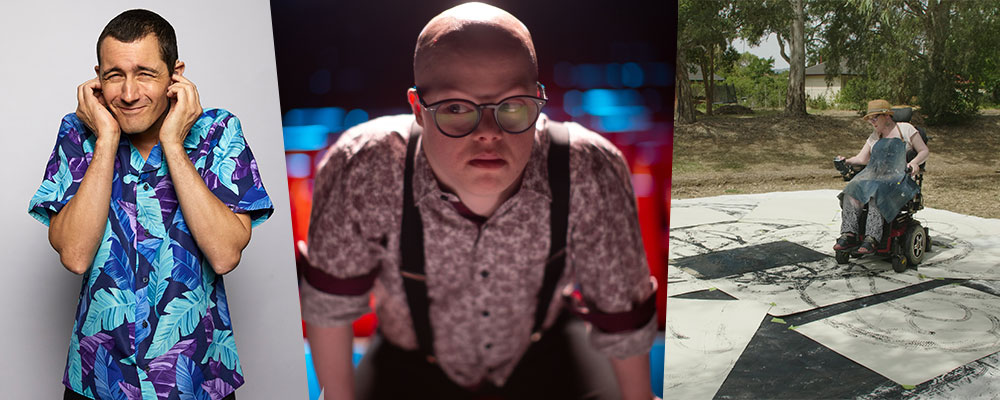WHAT‘S HAPPENING
News & Events
SAFC commits to boosting Deaf and disabled screen practitioners through inaugural Disability Equality Plan
04 December 2020

The South Australian Film Corporation (SAFC) is continuing its commitment to inclusion and diversity in South Australia’s screen sector with the launch today of its inaugural Disability Equality Plan, outlining the agency’s actions to support, encourage and develop South Australian Deaf and disabled screen practitioners and boost representation in screen content.
As one of the first initiatives under the new plan, the SAFC is also today issuing its first call-out for applications under its new Targeted Diversity Attachment Scheme, for a paid work opportunity on an upcoming factual series specifically for a Deaf or disabled writer or producer.
Today’s launch follows SAFC Disability Screen Strategy Executive Gaelle Mellis yesterday (3 December) being presented with the prestigious 2020 Australia Council National Arts and Disability Award for an Established Artist, on the International Day of People with Disability.
CEO of the SAFC Kate Croser said: “I am delighted to launch the SAFC’s first Disability Equality Plan, which cements the SAFC’s commitment to boosting representation of Deaf and disabled people in South Australian screen content, and promoting inclusion and diversity in our sector.
“In an environment of abundant choice, audiences increasingly value and seek authentic voices and content that reflects their own lives and experiences – something provided by Deaf and disabled screen practitioners through their fresh perspectives, aesthetics and approach.
“The SAFC values ensuring access and equality for all practitioners across the screen sector, and we recognise that representation is vital for ensuring our screen stories continue to connect with diverse audiences. We commit to working with the sector, and our partners, to prioritise inclusion to find and support diverse voices, and develop the skills and networks of Deaf and disabled practitioners in our state.
“I would like to thank SAFC Disability Screen Strategy Executive Gaelle Mellis for her integral role in developing this plan, and congratulate her on her Australia Council National Arts and Disability Award.”
SAFC Disability Screen Strategy Executive Gaelle Mellis said: “Stories affect how we live our lives, how we see other people, how we think about ourselves and how people see us. To be a Deaf or disabled person is to exist within a society where your image and identity are created by beliefs, values, myths, assumptions and stereotypes by non-disabled people.
“The SAFC values that Deaf and disabled people should be the producers of their own image and storytellers of their own lives. We also understand that if Deaf and disabled people constitute 20% of the population, then they represent a huge talent pool. Therefore, it is vital to embed access across all areas of the screen sector.
“The SAFC’s first Disability Equality Plan seeks to start redressing inequality within the screen sector for Deaf and disabled people and will lead to a cultural transformation across the screen sector. I am very pleased that we are already seeing success within the SAFC’s Full Tilt program, and in the increasing numbers of South Australian Deaf and disabled screen practitioners successfully applying for other opportunities and initiatives.”
The SAFC Disability Equality Plan outlines the systems, practices and facilities the SAFC has in place and the work the agency will undertake to support equality for Deaf and disabled screen practitioners, and meet the access needs of practitioners, audiences and stakeholders to overcome the significant barriers that exist for Deaf and disabled practitioners entering the screen industry.
In line with the new plan, the SAFC is providing a paid work and skills development opportunity for a Deaf or disabled writer or producer on an upcoming factual series through the newly introduced Targeted Diversity Attachment Scheme.
South Australian Deaf and/or disabled writers and producers are invited to apply now for the Post-Producer Attachment, which starts in February 2021 at the SAFC’s Adelaide Studios in Glenside. Find out more here.
The SAFC Disability Equality Plan is the latest in the agency’s ongoing series of successful diversity initiatives: in 2018 the Full Tilt Short Documentary Initiative saw South Australian Deaf and disabled content makers develop and produce three short documentaries for SBS; the 2018-19 Talent Camp targeted Deaf and disabled participants, resulting in a 33% participation rate by Deaf and disabled practitioners; and the newly launched Film Lab: New Voices feature film development program from the SAFC, Adelaide Film Festival and Mercury CX offers specific opportunities for diverse emerging practitioners, including Deaf and disabled filmmakers.
Download the SAFC Disability Equality Plan and find out more about the SAFC’s diversity initiatives on our Disability Screen Strategy page.
Downloads
- Download the full media release (198kb PDF)
- Download the SAFC Disability Equality Plan (521kb PDF)
